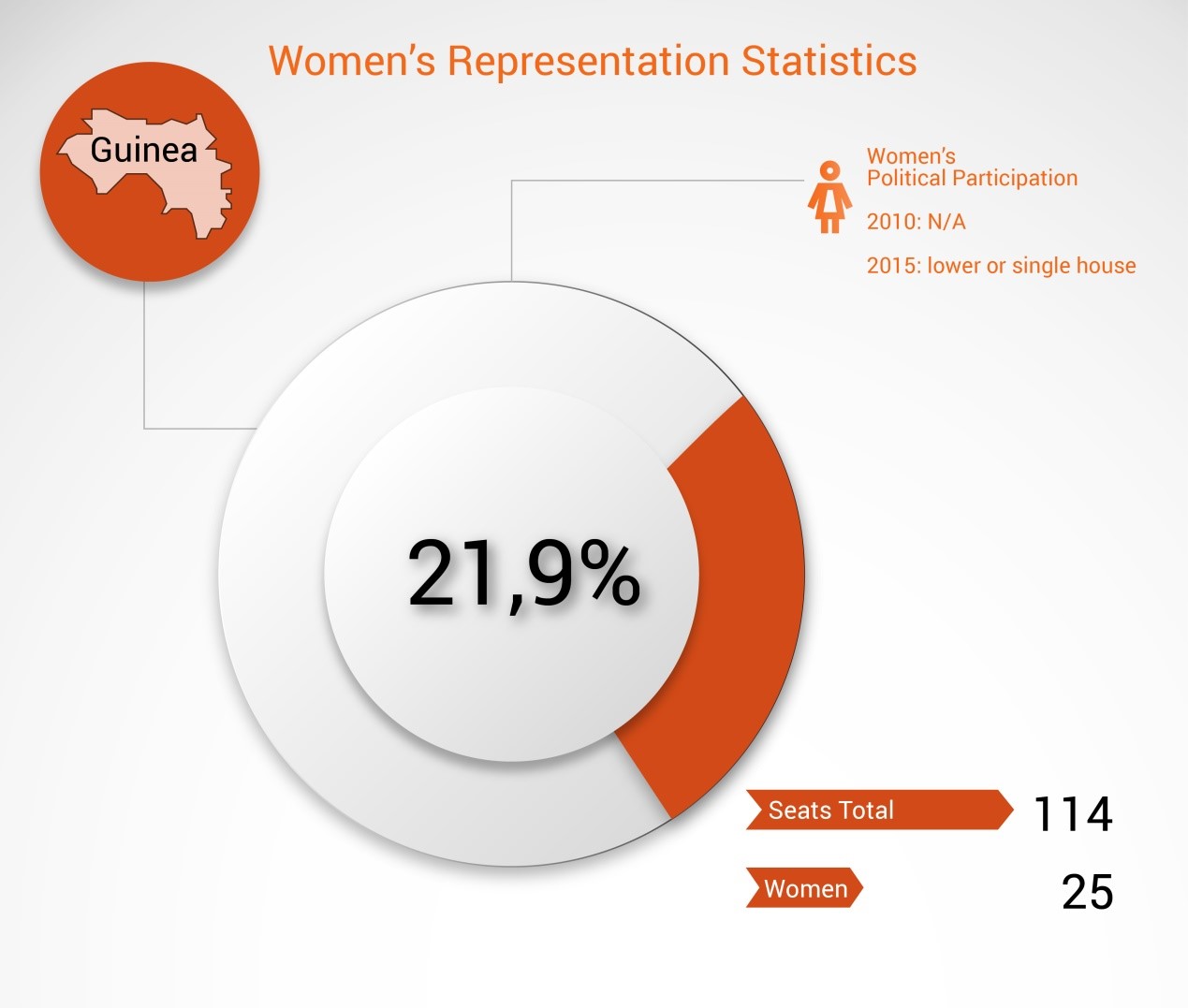2015 Elections Monitoring
Presidential elections were held in Guinea on 11 October 2015.
Prior to that, the seven opposition parties had called for a postponement, mentioning alleged irregularities in the electoral roll, but their pleas were rejected by the Independent National Electoral Commission (CENI). The elections were held with the two-round system where the President is elected by absolute majority vote and serves a 5-year term. The result was a first-round victory for President Alpha Condé, who received 58% of the vote.
Condé had already run unsuccessfully against President Lansana Conté in the 1993 and 1998 presidential elections. Then, Conté’s government threw Condé into jail in 2000 for “undermining the authority of the state” and he was released in 2001. In his third presidential contest in 2010, Condé placed second in the first round with 18% and then won the presidency in the second round with 53%. It has to be noted that, he was the first president in Guinea to come to power through a democratic election.
In Guinea’s National Assembly, 38 members are elected by plurality vote in single-member constituencies to serve 5-year terms and 76 members are elected through a closed-list proportional representation system to serve 5-year terms. The National Assembly was dissolved in December 2008 following a military coup. Since February 2010, the role of the legislature has been filled by the appointed 155-member National Transition Council.
Women’s political participation
Despite the fact that women constitute half of the population in Guinea, the percentage of women represented in Parliament is only 21.9% as there are only five women among 34 cabinet ministers. According to Afiwa Mata Ahouadjogbe, one of the main reasons there are few women who participate in political decision-making is their lack of funding as they don’t have the same access to financial resources as men because they are the poorest among the Guinean population.
Guinea’s Constitution was revised in 2001 to introduce the principles of non-discrimination and gender equality. Guinea has ratified the Convention on the Elimination of All forms of Discrimination against Women (CEDAW) but has yet to ratify the Protocol to the African Charter on Human and Peoples’ Rights on the Rights of Women in Africa. Since 2007 Guinea’s Civil Code has been under revision in order to eliminate several discriminatory measures regarding parental authority, divorce, child custody and the choice of a place of residence. The Government adopted its National Gender Policy in January 2011 and its objective is to wipe out men-women disparities through a systemic approach that will involve all sectors and all key players in the socio-economic development of the country.
In 2013, the UN documented 72 cases of rape and sexual assault, 55 of which involved girls. Forced and child marriage is common and according to government statistics, some 95% of girls and women undergo female genital mutilation, although the government is making efforts to address the problem.
Concluding remarks
Although the Guinean government is trying to take measures towards the enforcement of women’s rights it seems that there is a lot of talking but a little action. Women continue to be under-represented in political life, particularly at decision-making level. Consequently, they are not able to effectively contribute to the process of transition and consolidation of peace. The government still has to respond to several challenges such as: (i) respect for the rights of women, their access to justice and the protection from violence based on gender (ii) participation in political and economic spheres (iii) parity in the educational sector, (iv) access to information and health services (especially reproductive health) and (v) access to productive resources and job opportunities.

